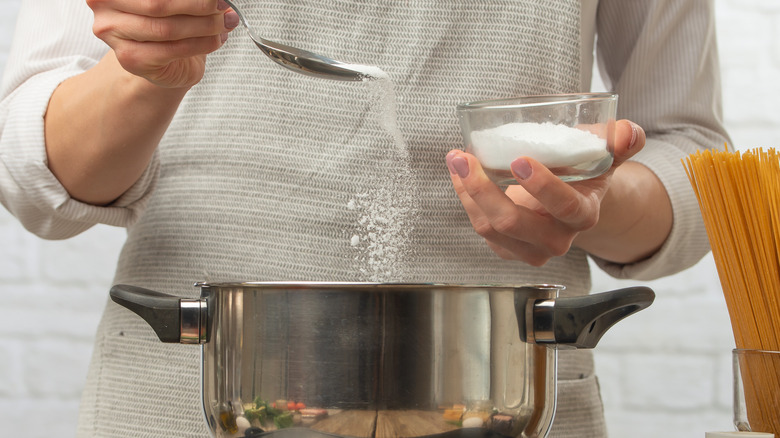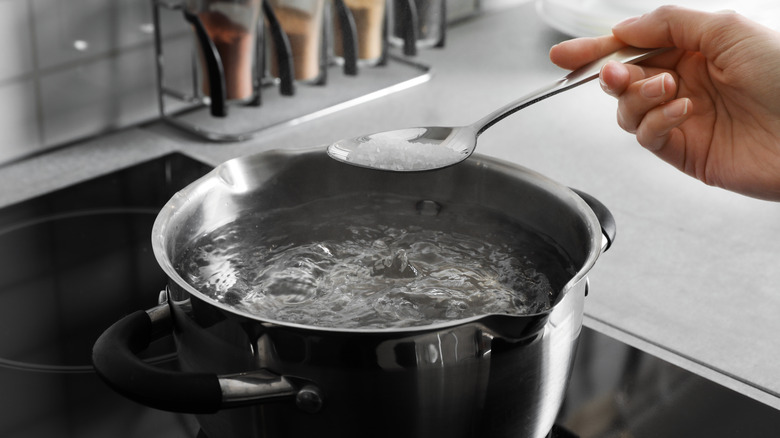TikTok Is Divided On When Exactly You Should Salt Your Pasta Water
There's a new cooking argument on TikTok sparked by a post from Barbara Costello, affectionately known as Grandma Babs. The roughly 1.2 million TikTokers that follow @BrunchWithBabs adore all that she does, from straight-forward tips like in her post on how to slice cherry tomatoes (FYI: it's pole to pole) to watching her do the "Fancy Like" dance in a post where she shares a copycat recipe for Applebee's Bourbon Street Steak (via TikTok). One of her most recent posts about making pasta has unexpectedly split her devoted followers into two camps: Before-salters and after-salters.
In a TikTok video, Grandma Babs says that while talking with her daughter, they fell into a debate on the proper way to salt pasta water. Her daughter is a before-salter — she adds salt to water before bringing it to a boil. Grandma Babs says, "No, you salt the pasta water after it boils," going on to say that being Italian she knows her pasta techniques. Her followers quickly added their two cents to the discussion. Several commenters said to salt before because it brings water to a boil faster, and another said that adding it before ensures you don't forget the salt entirely! Many followers disagreed, with one user, Lissa, saying that the water should be salted after the boil "otherwise the salt can discolor the bottom of your pan." Another commenter said that salt will "vaporize out" if added early, so it should always go in after boiling. So now we have to know: Which way is right?
Before or after: Does it really matter?
Some of the commenters' on Grandma Babs' TikTok post claim that adding salt to the cold pasta water will make it come to a boil faster. LiveScience says that while this is technically true because "less heat is required to increase saltwater's temperature," that time difference only amounts to a few seconds. Many of her followers who preferred after-salting said that doing this prevents pans from getting pitted by the corrosive salt. This theory was tested by StackExchange who concluded that it would actually take "thousands of hours" for saltwater solutions to corrode pans, no matter what the temperature. And as for the salt vanishing if added too early, as one commenter suggested? Bon Appétit says no, that as water boils, the solution can actually get saltier as moisture evaporates.
Grandma Babs says in her post that the salt dissolves instantly when added to boiling water. Taste Of Home agrees with her on that point, and recommends adding the salt when it reaches a full, rolling boil. However, in the same article Taste Of Home says the salt can instead be added to cold water, as long as you stir to be sure it dissolves. Though we may never get them to see eye-to-eye, at least before-salters and after-salters agree on one point: that we should be salting our pasta water. Because as Food52 notes, skipping the salt leaves us with under-seasoned pasta dishes.

